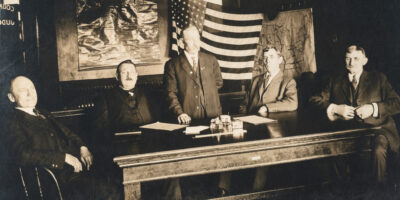China’s Hard Landing and Hayek
A few days ago, Paul Krugman defended the position that “Friedrich Hayek is not an important figure in the history of macroeconomics.” This triggered quite a few reactions (here, here, here, here and here). Anyone familiar with the general aspects on the history of economic thought will find Krugman’s defense odd. To deny the relevance of the Keynes-Hayek debate is like trying to cover the sun with your hand, you can only deceive yourself.
Interestingly, on December 3rd, the Wall Street Journal published an article titled China’s Hard Landing, which, after describing the problems subsequent to the largest stimulus plan history can provide, says the following:
China is a poster child for the Austrian school of economics’ theory of the business cycle. After undertaking the biggest stimulus program the world has ever seen in response to the global financial crisis, the country is drowning in unproductive investments financed with credit. […]
Worsening inflation forced the government to put on the brakes this year. As with most property busts, transactions dried up, followed by a free fall in prices. Land prices were down 60% year on year in September. Property developers are slashing prices of new homes to stave off bankruptcy.
The case of China mentioned in the Wall Street Journal is the reason why Hayek started his analysis assuming equilibrium, and from there to move on to see how things can go wrong, before we design a policy to fix the problem. We don’t want, after all, for the policy that is supposed to make things better to be the same policy that brought us the problem in the first place. I agree with Horwitz that Rizzo is right in saying that “Hayek’s approach attacks, root-and-branch, the macroeconomic way of thinking.” This is no better warning than Bastiat’s that “the good economist takes into account both, the effects that can be seen and those effects that must be foreseen.” This, however, does not apply only to economic policy; it applies to economic theory as well. This is what makes Hayek different, and also a good economist.
Nicolas Cachanosky is a doctoral student in economics at Suffolk University, as well as a previous Sound Money Essay Contest winner.










